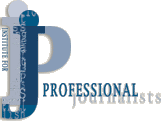IPJ, IMS Plan Investigative Journalism Project
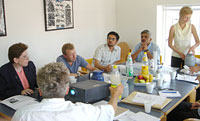
From left: IPJ director Magda Abu-Fadil; Marcus Rubin of IMS; Ibrahim Hamidi, Al Hayat Damascus bureau chief; Daoud Kuttab director of AmmanNet; and Pernille Brix, IMS consultant, at initial Copenhagen meeting.
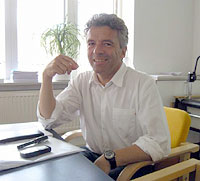
IMS Executive Director Jesper Hojberg leading Copengahen meeting.
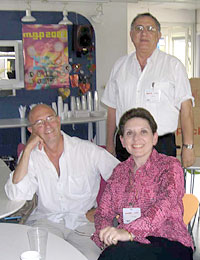
(Seated) Tim Cenius, executive producer for children’s television, Danish Television; Magda Abu-Fadil; (standing) Nabil Dajani, communication professor at the American University of Beirut, during a visit to Danish TV headquarters in Copenhagen.

Pernille Bramming, editorial page editor of key Danish paper Weekendavisen, talks with IPJ director during Copenhagen visit.
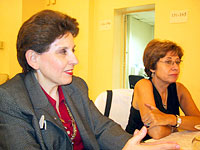
Abu-Fadil and LAU Dean of Arts & Sciences in Beirut Dr. Samira Aghacy hosting Danish guests to lunch at university.
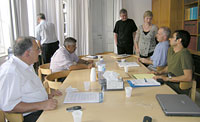
(Seated) Dajani; Kuttab; Anders Jerichow, Middle East expert and journalist at Danish daily “Politiken;” Hamidi. (Standing) Henrik Kaufholz, Danish Association for Investigative Journalism; Jørgen Bæk Simonsen, director of the Danish Institute in Damascus; and Pernille Brix of IMS.
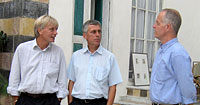
Lars Kabel of the Danish School of Journalism discusses state of media in Arab countries with Jerichow and Kaufholz during Damascus visit.
A group of Arab and Danish media experts met in Copenhagen, Beirut and Damascus in 2004 to set the stage for an investigative journalism project that initially includes reporters from Lebanon, Syria and Jordan and may later be expanded to cover the entire Arab world.
The group’s meetings spawned the Arab Reporters for Investigative Journalism Steering Committee which will oversee an “Inception Phase” of the project to test its viability before proceeding with the larger scheme.
ARIJ announced the organization of a workshop on investigative journalism at the Lebanese American University’s Beirut Campus in January 2005, in cooperation with the university’s Institute for Professional Journalists.
The experts agreed that the near absence of investigative Arab journalism stems from a lack of professionalism and accuracy, with a tendency for journalists to confuse features with investigative reporting.
The ARIJ Steering Committee groups Mr. Daoud Kuttab (AmmanNet), Prof. Nabil Dajani (American University of Beirut), Mr. Ibrahim Hamidi (Al Hayat daily) and Ms. Magda Abu-Fadil, director of the Institute for Professional Journalists.
The larger project will be coordinated regionally by the steering committee and locally by national coordinators. The Danish implementing partners will be the Danish Association for Investigative Journalism (FUJ) and the Danish School of Journalism.
The steering committee was formed following meetings in Copenhagen in August 2004 and in Damascus in October 2004 and organized by the Danish-based International Media Support.
Danish experts Pia Thorsden, of the Danish Association for Investigative Journalism, Prof. Lars Kabel of the Danish School of Journalism, and journalist/Middle East expert Anders Jerichow of the daily “Politiken” will assist in organizing the workshop.
The non-governmental partnership project aims at encouraging a professional exchange between journalists in the Arab world and Denmark and enhancing the practice of investigative reporting. Such cooperation will hopefully result in exchanges between educational institutions and media in the Middle East and Denmark as well as better representation of Middle Eastern journalism in Danish media.
Print, radio and online journalists were invited to apply for the Beirut workshop. Twelve journalists with 3–5 years of experience in the media are to be selected to participate in the mini-course which will result in the publishing, online posting and airing of their respective assigned projects.
